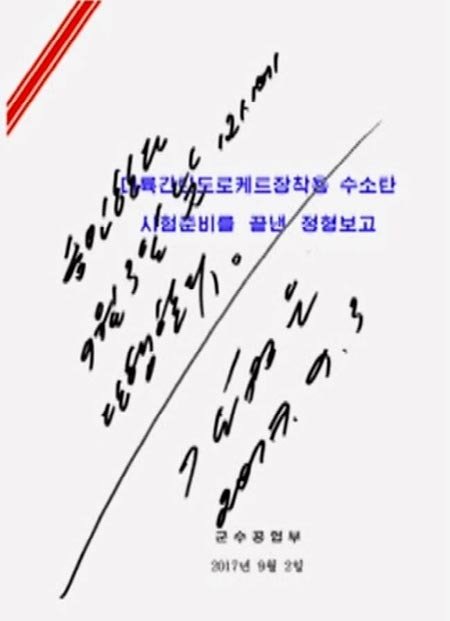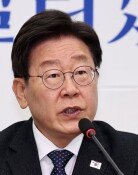N. Korea claims successful hydrogen bomb test
N. Korea claims successful hydrogen bomb test
Posted September. 04, 2017 08:33,
Updated September. 04, 2017 08:52

For one, chances are high that Pyongyang will push to conduct additional nuclear tests with a boosted fission nuclear bomb (pre-step to the hydrogen bomb), and hydrogen bomb, which is dozens of times more powerful than a conventional nuclear warhead. It means the North could develop a nuclear weapon with an explosive yield of hundreds of kilotons by elevating the mass destruction force of the nuclear weapons, which could force the international community to accept the North’s nuclear armament. “Kim Jong Un will judge that if Pyongyang actually deploys a hydrogen bomb-class nuclear weapons to combat mission, it will be recognized as a de facto nuclear power," said a South Korean military source.
The North will also likely continue to launch ICBMs that can strike Washington and New York by increasing their ranges. Chances are high that the North can judge it can secure a crushing win in a nuclear weapons game against the U.S. if it completes re-entry technology the final phase in ICBM development to target the U.S. mainland, and loads a hydrogen bomb-class nuclear warhead on the ICBM.
The North’s official mouthpiece Rodong Sinmun claimed that the nuclear bomb under development by the North will have an explosive yield amounting to dozens to hundreds of kilotons. Such a bomb is generally weaker in explosive yield than a hydrogen bomb, which offers an explosive yield of megaton.
If a hydrogen bomb with an explosive yield of megaton is exploded in a narrow combat area within the Korean Peninsula, both both sides can be dealt with a fatal blow. For this reason, watchers say that Kim Jong Un could have adjusted the explosive yield of its hydrogen bomb by taking into account the possibility to use it in real combat mission, after doing the same with the nuclear warheads (uranium and plutonium bomb) it had developed already.
“Kim Jong Un is expected to repeat provocations and negotiation tactics with South Korea and the U.S. after securing nuclear deterrent on par with that of the former Soviet Union during the Cold War era,” said a high-ranking military official. “In a bid to maintain his regime and perpetually stay in power, Kim will demand withdrawal of the U.S. troops from South Korea, signing of a peace treaty and massive economic aid.”
Sang-Ho Yun ysh1005@donga.com · Hyo-Ju Son hjson@donga.com







